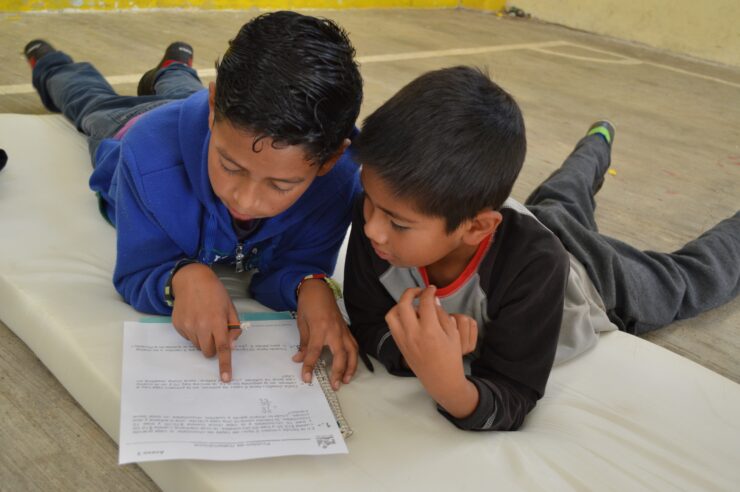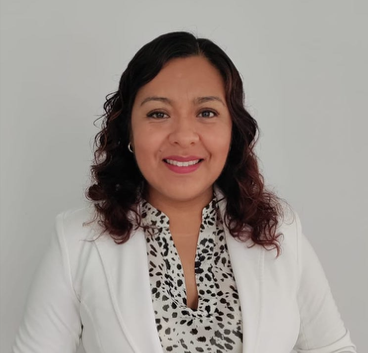Empowering futures through foundational learning
How improving underprivileged children’s math and reading skills can have lasting benefits for society

Boosting foundational skills helps children gain the tools they need for life, says Anabel Velásquez Durán of Medición Independiente de Aprendizajes. Anabel talks with Aisha Schnellmann about how strengthening the math and reading skills of children in underprivileged communities in Latin America can have a cascading impact on society.
Aisha Schnellmann: What are the biggest challenges facing children globally as well as in Latin America and the Caribbean?
Anabel Velásquez Durán: The global education crisis has become increasingly critical. According to UNESCO, over 617 million children worldwide struggle to read simple sentences or perform arithmetic calculations. The pandemic has intensified the crisis, especially in regions like Latin America and the Caribbean, where learning poverty – the inability to read and understand a simple text by age 10 – was projected to rise from 52% in 2019 to 79% in 2022.
In Mexico, the pandemic hit students hard. Our recent study showed that the number of 10- to 15-year-olds who could read simple texts dropped from 75% in 2019 to 58% in 2021, and the proportion of those able to do basic math like two-digit subtraction fell from 70% to 40%. Children from lower socioeconomic backgrounds were hit hardest, with significant losses in both reading and math skills.
Latin America continues to face a number of education challenges, from limited access to early and higher education to a persistent gap in both opportunities and quality.
These children face the tough challenge of catching up on basic skills, overcoming poverty, and recovering from learning loss to stay on track in their education.
AS: What do children need to help them thrive?
AVD: Children need more effective ways to help them catch up quickly on essential skills and prevent further learning loss, including access to targeted programs that focus on strengthening literacy and mathematical skills.
I believe there are three key actions that the educational community can take to help children overcome this learning crisis. First, we need to use assessments to identify the extent of the problem, track progress, and measure results, using reliable tools. Second, we need to create and apply innovative approaches to help children strengthen their foundational skills in reading and math as well as life skills, ensuring that education is tailored to their individual needs. Third, we need to encourage the larger community and the educational system to get involved by teaching skills and closely monitoring progress.
It is also important to continue researching what helps or hinders learning, strengthen early primary education with a focus on literacy, and set up systems to diagnose problems and offer early support.
“We need to create and apply innovative approaches to help children strengthen their foundational skills in reading and math as well as life skills.”
AS: How is the work of Medición Independiente de Aprendizajes (MIA) promoting children’s learning and development?
AVD: Our educational innovations like MIA Learning Camps have made a real difference, helping children in primary school achieve the equivalent of one year of progress in reading and two years in math. The MIA Reading Camps aim to improve communication skills and reading comprehension at different levels: literal, inferential, critical, and evaluative. The general objective of the MIA Math Camps is to develop basic logical-mathematical skills in children and adolescents through diversified activities that allow them to improve their learning in a framework of collaboration and creativity.
By boosting foundational skills, MIA helps children gain the tools they need for life, while also increasing the value placed on education in the society, improving social mobility, and positively impacting inequality.
Our measurement tools and educational innovations are now widely used in a variety of school settings, contributing to long-lasting improvements in education systems.
AS: What has inspired you in this work?
AVD: I am inspired by the degree to which our educational innovations have scaled up. MIA now plays a key role in influencing educational policy and practice. We are currently providing valuable insights and recommendations to support the Mexican government’s learning recovery efforts.
It is remarkable how well-planned, evidence-based solutions and educational innovations are able to address rising inequality, restore the value of education, improve learning outcomes, and raise public awareness about the importance of education.
“My vision for the future is a world in which every child has the skills needed to thrive and access to high-quality education.”
AS: What is your vision for children in the future?
VD: My vision for the future is a world in which every child has the skills needed to thrive and access to high-quality education. I also hope to see a society that is actively involved in education and using proven methods to support lifelong learning.
Footnotes
Anabel Velásquez Durán holds a PhD in Educational Systems and Environments, a master’s degree in Virtual Education, and a bachelor’s degree in Administrative Computer Systems. Anabel is a researcher at the Institute for Research in Education, Universidad Veracruzana, and a Postdoctoral Fellow at CIESAS (CONAHCyT). She is General Director of Independent Measurement of Learning for the MIA program. Her research focuses on technology-mediated learning and educational innovations. She coordinates international research projects funded by the Hewlett Foundation, the Tinker Foundation, the PAL Network, the SUMMA laboratory of the Inter-American Development Bank (IDB), the Kellogg Foundation, and UNICEF. Anabel is a member of the National System of Researchers (SNI) and the Mexican Council for Educational Research (COMIE). The author of several publications, she has 20 years of professional experience.
Anabel on ORCID
MIA Website, and on Facebook, X, Instagram, YouTube
Universidad Veracruzana (UV) and Centro de Investigaciones y Estudios Superiores en Antropología Social (CIESAS) are a finalist for the 2024 Klaus J. Jacobs Best Practice Prizes, which recognize institutions and individuals working to implement evidence-based solutions aimed at promoting child development and learning in practice. Medición Independiente de Aprendizajes (MIA) is its special advocacy program.
This interview has been edited for clarity.

